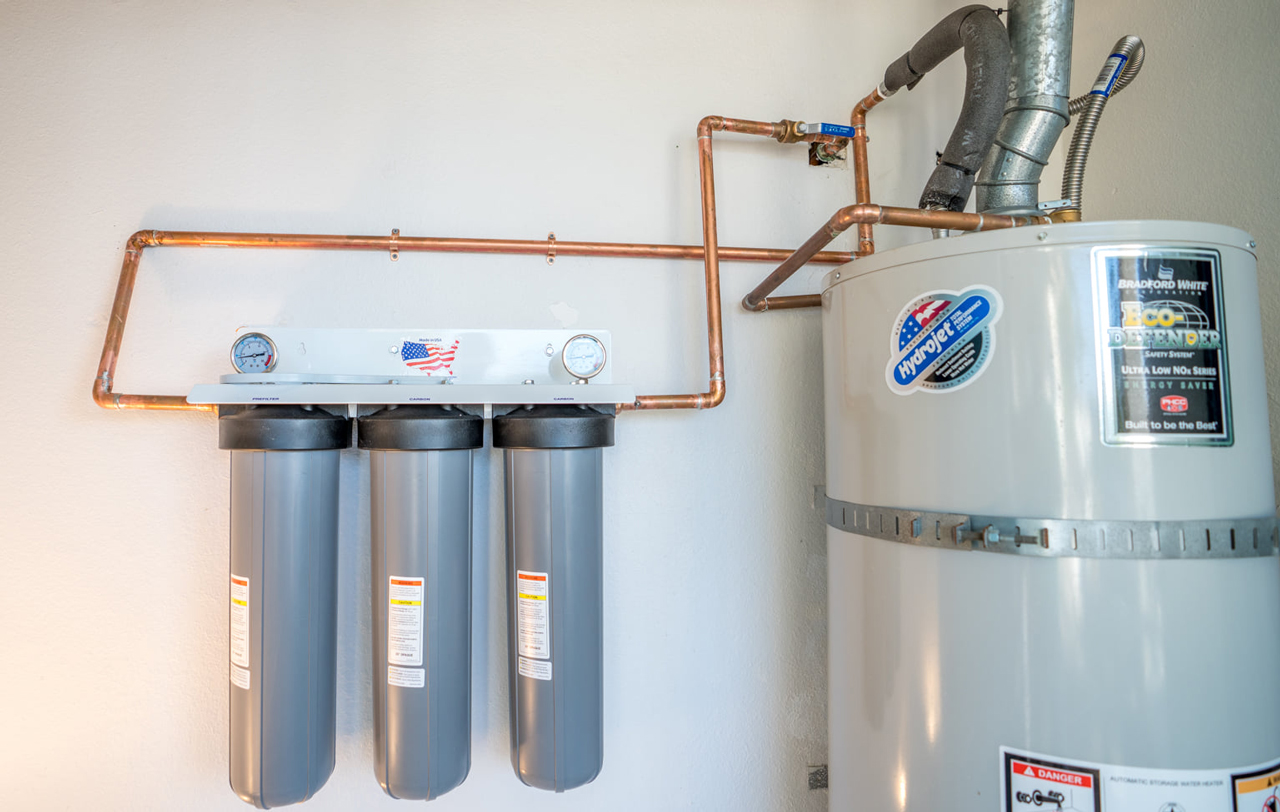
Water softening is the process of removing minerals that make water hard, such as calcium and magnesium, through water treatment equipment known as a water softener. Installing a water softener can significantly improve water quality, prevent scale buildup in pipes and appliances, and extend the lifespan of your plumbing system.
However, proper installation is crucial for the efficient functioning of the water softener. This blog will discuss the essential factors to consider when determining the best location for installing a water softener, including access to power, water supply, drainage, and the mistakes to avoid during installation.
Factors to Consider When Deciding on Water Softener Installation Location
When deciding on the installation location of your water softener, there are several factors to consider. One of the most important factors is the location of your water supply. You should choose a location that is close to your main water supply and easily accessible.
Another factor to consider is the amount of space you have available for the installation. You will need to ensure that there is enough space to accommodate the water softener unit, the mineral tank, and the pressure tank.
Other factors to consider include the location of your electrical outlet, the type of water softener you have, and the water hardness level in your area. It is also important to consider the drainage system in your home, as the water softener will need to be connected to a drain for the backwash cycle.
Indoor Installation: Choosing the Right Spot for Your Water Softener
Indoor installation is the most common type of water softener installation. When choosing the right spot for your water softener, it is important to select a location that is easily accessible and where the water supply enters your home.
You should also consider a location that is protected from direct sunlight and where the temperature remains relatively constant. A utility room or basement is an ideal location for indoor installation, as it offers ample space and easy access to water and electrical outlets.
When choosing a location, it is also important to consider the proximity to the drain system. The water softener unit will need to be connected to a drain for the backwash cycle, so the location should be close to a drain or have a drain hose long enough to reach the nearest drain.
Overall, the indoor installation of a water softener requires careful consideration of the factors mentioned above to ensure that the unit operates efficiently and effectively.
Outdoor Water Softener Installation: Pros and Cons
An outdoor water softener installation may be an attractive option for homeowners who lack adequate indoor space or prefer to keep noisy equipment outside. However, it also comes with its own set of pros and cons.
Some of the advantages include easier installation, more accessible maintenance, and potential cost savings on indoor plumbing modifications. On the other hand, outdoor installations may be exposed to extreme temperatures, direct sunlight, and harsh weather conditions, potentially reducing the lifespan of the equipment.
Additionally, outdoor installations may not be suitable for areas with high crime rates, as they can be easy targets for theft or vandalism.
Common Water Softener Installation Mistakes to Avoid
Proper installation of a water softener is crucial to its performance and longevity. Some common mistakes to avoid include installing the equipment too close to a water heater or other heat source, failing to install a bypass valve, neglecting to perform a water hardness test before installation, and not considering the availability of an electrical outlet.
Other common issues include improper connection of drain and overflow tubes, failure to level the unit, and using low-quality pipe fittings. To ensure a successful water softener installation, it’s recommended to hire a professional installer or carefully follow the manufacturer’s instructions.
Leave Your Water Softener Installation to Puragain Water’s Experienced Team
Looking for a professional and reliable water softener installation service? Look no further than Puragain Water! Our team of experts is equipped with the knowledge and tools to ensure your water treatment systems are installed in the optimal location, whether indoors or outdoors.
We take into account various factors such as water quality, access to power, and space constraints to determine the best installation scenario for your needs. Trust us to handle the installation process from start to finish, ensuring a hassle-free experience.
To schedule your whole-house water filtration systems installation with the best in the industry, fill out our online form or contact us at 855-40-WATER at Puragain Water today!


